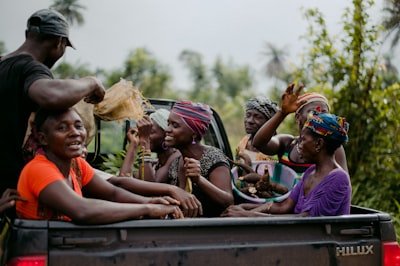The announcement that the Democratic Republic of Congo (DRC) and Rwanda have signed a US-brokered peace agreement is both historic and deeply complex. The rivalry and conflict between these neighboring states have left scars not only on their peoples but on the entire Great Lakes region. Rooted in ethnic tensions, competition for mineral riches, and deep-seated mistrust, their relationship has oscillated between uneasy cooperation and open hostility.
Key Dilemmas and Controversies At the heart of the dispute lies the ongoing presence of armed groups in eastern DRC—many with alleged connections to Rwanda, either directly or through shared interests. Both governments have long accused each other of meddling and fostering instability across borders. For Kinshasa, Rwandan support for the M23 rebel group remains a red line; for Kigali, the presence of hostile Hutu militias, founded by perpetrators of the 1994 Genocide, is a constant security threat.
What’s at Stake?
- Humanitarian Impact: Millions have been displaced due to recurring violence. Improved relations could mean a significant decrease in displacement and human suffering.
- Regional Stability: The DRC and Rwanda act as linchpins in central African politics; peace could encourage economic growth, cross-border trade, and greater security coordination throughout the region.
- Resource Management: Eastern Congo is among the world’s richest sources of cobalt, gold, and coltan—critical for global tech. A peace deal could reduce illicit resource extraction and supply chain exploitation linked to conflict.
| Pros of the Peace Deal | Cons or Risks |
|---|---|
| Potentially ends cycles of violence | May only freeze, not resolve, disputes |
| Opens doors for regional cooperation | Previous deals have collapsed |
| Reduces humanitarian crises | Power imbalances remain |
| US engagement adds leverage | Local actors may feel excluded |
Why This Moment Matters The US facilitation signals a renewed international focus on central Africa, where previous interventions often faltered due to lack of sustained attention. Yet, the success of this deal will hinge less on diplomatic signatures and more on meaningful implementation on the ground. Both leaders must overcome immense political and economic pressures, and ensure marginalized voices—especially those from conflict-ridden communities—are respected in reconciliation efforts.
A notable risk is that ambitious international signings can mask the reality that local drivers of violence and exploitation remain unresolved. The DRC-Rwanda borderlands are vast, difficult to police, and home to dozens of non-state and criminal actors. Peace on paper does not immediately translate to peace in practice.
Broader Trends: The Global Stakes This deal is emblematic of broader global dynamics where great powers—like the US—seek to shape regional outcomes for strategic interests. For tech-dependent economies, stability in Congo isn’t just a humanitarian issue; it’s about securing supply chains for the minerals powering the green transition and digital future.
Ultimately, while the peace deal is promising, sustained peace will require relentless local engagement, international vigilance, and, most importantly, the political will to transform fragile hope into lasting stability.
This article was inspired by the headline: 'Democratic Republic of Congo and Rwanda sign US-brokered peace deal'.

Comments
No comments yet. Be the first to comment!